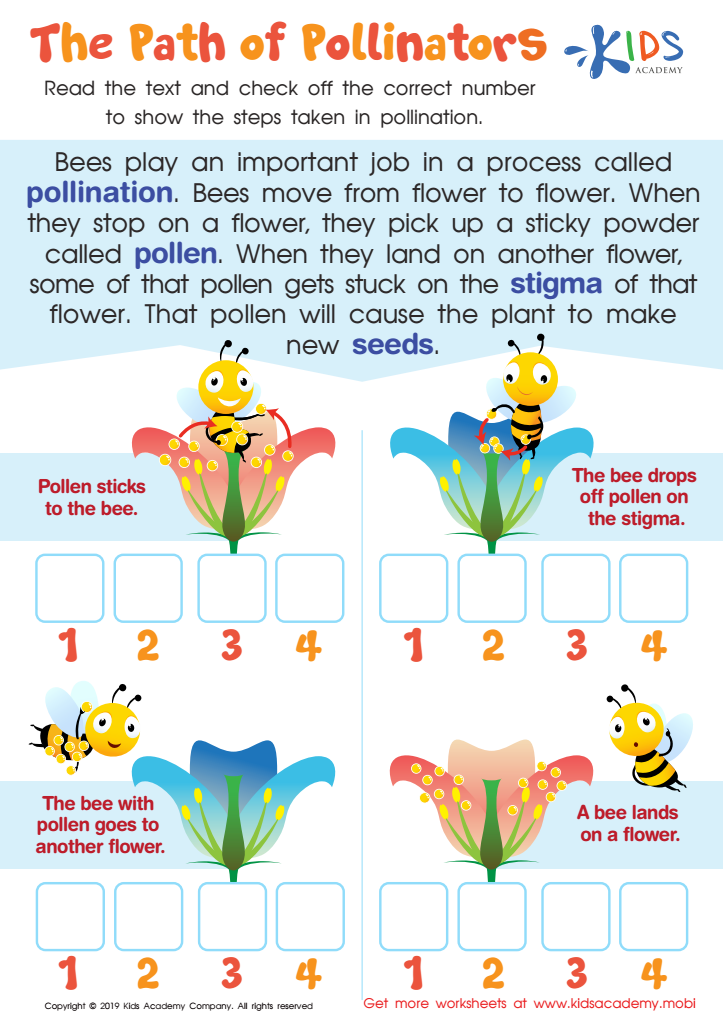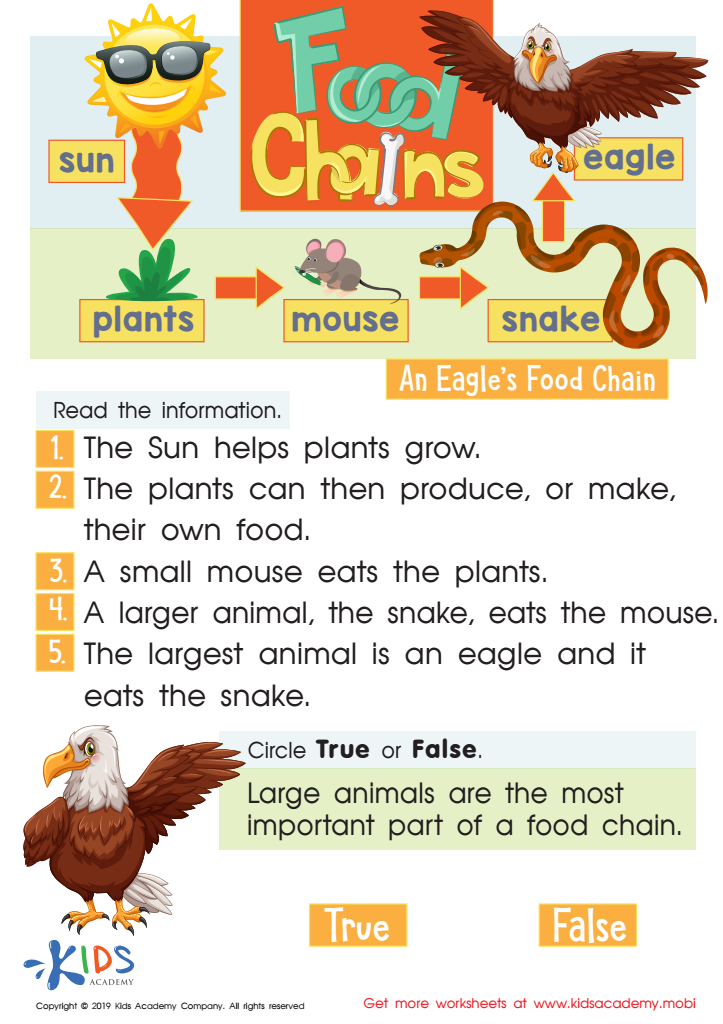Learning about ecosystems Normal Plants and Animals Worksheets for 8-Year-Olds
3 filtered results
-
From - To
Explore the fascinating world of ecosystems with our engaging "Learning about Ecosystems: Normal Plants and Animals Worksheets" designed for 8-year-olds! These interactive worksheets provide a fun and educational way for young learners to understand the vital relationships between plants, animals, and their habitats. Each activity encourages critical thinking and creativity, helping students identify various ecosystems, learn about biodiversity, and discover the roles different species play in their environments. Perfect for classrooms or home study, these resources make science both enjoyable and accessible. Foster a love for nature while reinforcing essential concepts with our easy-to-use worksheets today!


Pollinator Positions Worksheet


The Path of Pollinators Worksheet


Food Chains Worksheet
Learning about ecosystems, including the normal plants and animals within them, is crucial for 8-year-olds for several reasons. First, it provides foundational knowledge about the natural world. Understanding ecosystems helps children recognize the interdependence of species and the balance that sustains life. This awareness fosters respect for nature and can spark a lifelong interest in environmental stewardship.
Moreover, information about ecosystems is woven into various subjects, from science to art. It enhances critical thinking and observational skills as children explore their surroundings. Engaging with ecosystems encourages outdoor activities, promoting physical health and reducing screen time.
Parents and teachers play a pivotal role in shaping children's attitudes toward nature. By emphasizing the importance of plants and animals, they instill values of empathy, responsibility, and conservation. Children learn the significance of biodiversity and the impacts of human actions on the environment, which is increasingly vital in today’s world facing ecological challenges.
Finally, learning about ecosystems prepares children for future academic pursuits in biology, environmental science, and other related fields. The knowledge they gain now builds a robust framework for understanding complex environmental issues later in life. Thus, fostering an environmental conscience during these formative years is essential.
 Assign to My Students
Assign to My Students




























